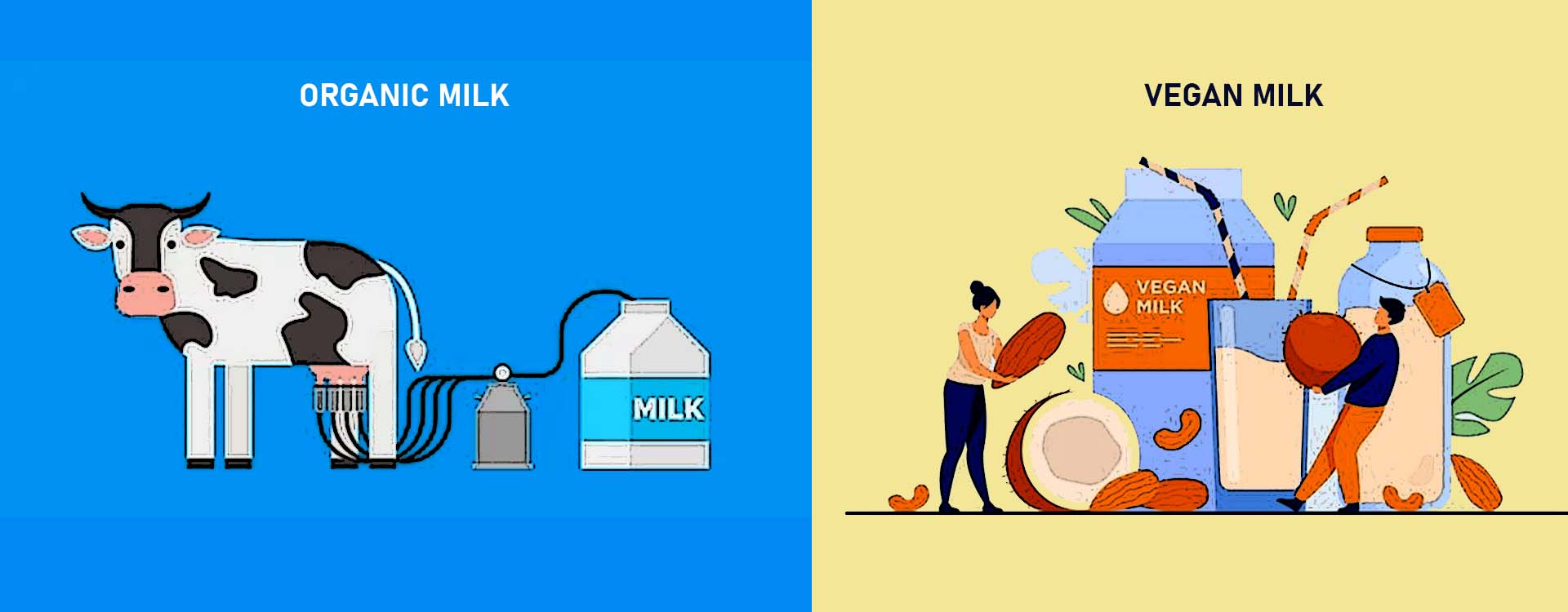Amul’s recent print ad written in blue caps “plant-based dairy analogue products like soya beverages are not milk” attracted flak from PETA (People for Ethical Treatment of Animals), BWC (Beauty Without Cruelty) and Sharan India. The print ad elaborately explained the myths and facts associated with the so-called ‘Vegan Milk’. The above-mentioned organisations are the flag-bearers of animal rights protection and sustainable lifestyle that filed their complaints against Amul’s print ad to ASCI for portraying vegan-based plant beverages in a bad light and robbing their identity from being called‘ Milk’. The nutritional and health benefits of milk derived from bovines are hurled with attacks like – milk is not a complete food, it is harmful to health and less nutritious than plant-based food; dairy farming is subjected to cattle cruelty. However, things turned out to be in Amul’s favour since ASCI dismissed their complaints after observing that plant-based milk is not eligible to be called milk as per the Food Safety and Standards Authority of India (FSSAI). While FSSAI does not recognise plant-based beverages like milk, then why do vegan brands advertise it as milk?
The Contentious Bottle of Milk
Several incidents of animal cruelty visuals that have surfaced in social media in the past have been amplified by animal activist groups like Arvind Animal Activist and Vegan Outreach India to raise awareness about animal suffering. These groups and several vegan influencers are propagating the idea to live a sustainable and healthy lifestyle without harming animals. Latching on to this, the vegan brands are portraying that milking activity is a painful process, where initially the cow milk is for the newborn calf, which we forcibly milk it. The brands are calling for empathy towards animals which is influencing the shift towards plant-derived beverages and claiming to have nutrition value equivalent to milk.
Plant-based beverages are an alternative for lactose-intolerants. Though vegan beverages are in their infancy, the rise of disposable income and weight management concerns regarding the consumption of milk fats are paving the demand for plant-based beverages.
But what is marketed as a bottle of nutrition might not be correct as the plant-based beverages lack the conviction of passing any clinical trials or any scientific research that plant-based beverages can suffice the nutrition content as milk.
‘‘
The Retailers Association of India revealed that the de-growth in furniture retail has been in the region of 40 per cent in pandemic.
What is FSSAI saying about Plant-based Beverages?
FSSAI, in its recent regulation, has revised the definition of milk and milk products, stating that products containing constituents of plant derivatives can not be termed as ‘Milk’ or ‘Milk Products’ and not be branded as milk in any advertisement, label, or commercial document. As per the FSSAI regulations 2012, milk is the normal mammary secretion derived from complete milking of a healthy bovine without adding or extracting any constituent unless otherwise provided in these regulations.
What should Food businesses Keep in Mind?
Cow milk is naturally rich in protein, calcium, potassium and vitamin A and does not require any extra addition of nutrients, also all the nutrients cannot be found in plant-based beverages unless they are fortified further. While marketing plant-based beverages, it is essential for food businesses to keep in mind that branding it like milk or claiming to have a higher nutrition value than milk will be an exaggeration. If the vegan beverage impersonating as milk does any adverse effect on health against the claims made, it will be detrimental to the brand and business.
It will be prudent of food businesses to brand the beverage as plant-based with proper labelling of added sugars, artificial flavours, thickeners, and acidity regulators if present and mention allergens while adhering to FSAAI compliances and establishing transparency.




